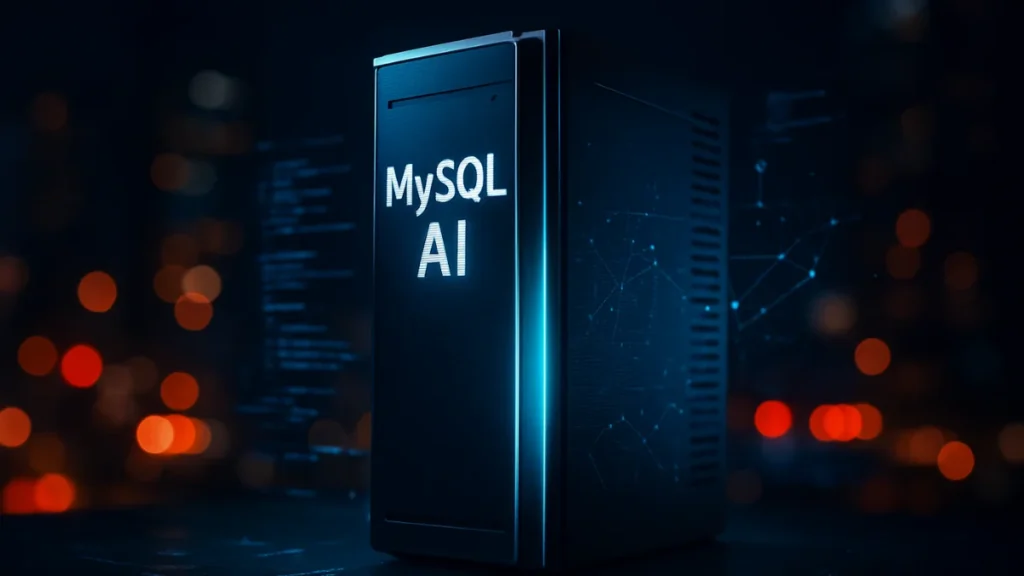Oracle is giving MySQL a powerful AI upgrade—if you pay for Enterprise.
The new MySQL AI promises vector search, GenAI tools, and on-prem analytics, but community leaders warn it may signal a slow squeeze on the open-source edition.
Key Takeaways
- MySQL AI adds vector search, AutoML, and natural-language query features.
- Oracle limits the new tools to paid Enterprise and HeatWave users.
- Layoffs and past licensing moves heighten open-source community concern.
- Analysts warn vendor lock-in could push enterprises to rivals like MariaDB.
- A free trial download is available, but key features remain behind paywall.
Oracle’s MySQL AI introduces vector search, AutoML, and natural-language SQL features inside MySQL Enterprise, enabling retrieval-augmented generation apps without separate vector databases. Community leaders fear the move accelerates Oracle’s shift toward paid HeatWave services and could erode support for the free MySQL Community edition.
Oracle Brings AI Inside MySQL
Oracle has unveiled MySQL AI, a new suite of AI-powered capabilities for the paid MySQL Enterprise edition. The release targets large-scale analytics and retrieval-augmented generation (RAG) workloads, enabling enterprises to build AI applications directly within MySQL without moving data to separate vector databases.
The platform adds a Vector Engine for storing document embeddings in InnoDB, AutoML for automated model training, Generative AI APIs for on-prem agentic workflows, and NL2SQL for natural-language database queries. A new MySQL Studio interface offers a Jupyter-compatible notebook and chat-style query environment.
Senior VP of MySQL engineering Nipun Agarwal highlighted use cases such as financial fraud detection, inventory forecasting, and travel bookings—all running directly on servers or on MySQL HeatWave in Oracle Cloud Infrastructure.
Industry Response: Lock-In Concerns Rise
While Oracle pitches MySQL AI as a breakthrough for enterprise developers, open-source advocates fear a strategic pivot.
“The features enterprises want most—analytics, ML, vector—are now increasingly locked into HeatWave,” warned Patrik Backman, MariaDB co-founder and OpenOcean CEO (Interview, 2025).
Open-source database expert Mark Callaghan added that MySQL’s long-term health depends on continued investment in the free Community edition.
The announcement follows Oracle’s recent layoffs in MySQL engineering and a broader AI push around HeatWave, Oracle’s managed MySQL Enterprise service. Critics worry that valuable innovations may bypass the Community edition entirely.
Why It Matters for Enterprises
Enterprises that rely on open-source MySQL for mission-critical workloads now face a decision: pay for Enterprise to access cutting-edge AI features or risk falling behind competitors.
HeatWave, which already offers built-in machine learning and analytics, becomes more compelling as Oracle ties advanced capabilities to paid licensing.
Global Implications for Open Source
MySQL’s origins lie in openness and cross-platform freedom. If Oracle continues to concentrate innovation in the Enterprise edition, rival platforms such as MariaDB, PostgreSQL, or emerging cloud-native vector databases could attract developers seeking flexibility.
Analysts note that once enterprises adopt Oracle-exclusive AI features, migrating away becomes costly. “The cost of inaction may soon outweigh the cost of change,” Backman cautioned.
What Happens Next
Oracle has released a trial download of MySQL AI and demo videos of MySQL Studio. Early enterprise adopters will test its AI-driven query acceleration over the coming months, while the open-source community watches for signs of further feature divergence.
Conclusion
MySQL AI gives Oracle a head start in embedding vector and GenAI capabilities inside a mainstream relational database. But by restricting the tools to its paid Enterprise tier, Oracle risks alienating the very developer base that made MySQL a global standard.
